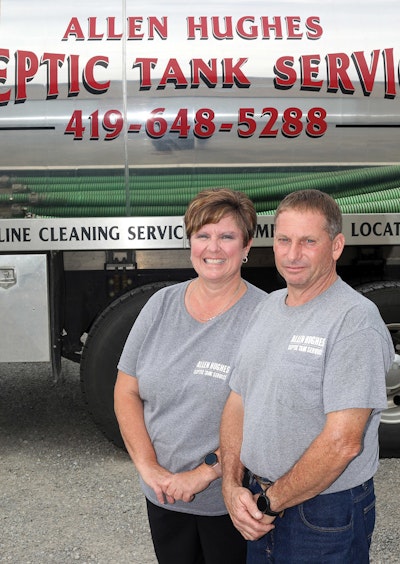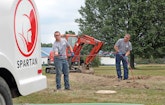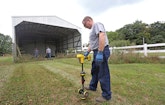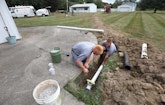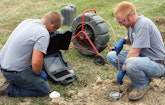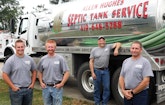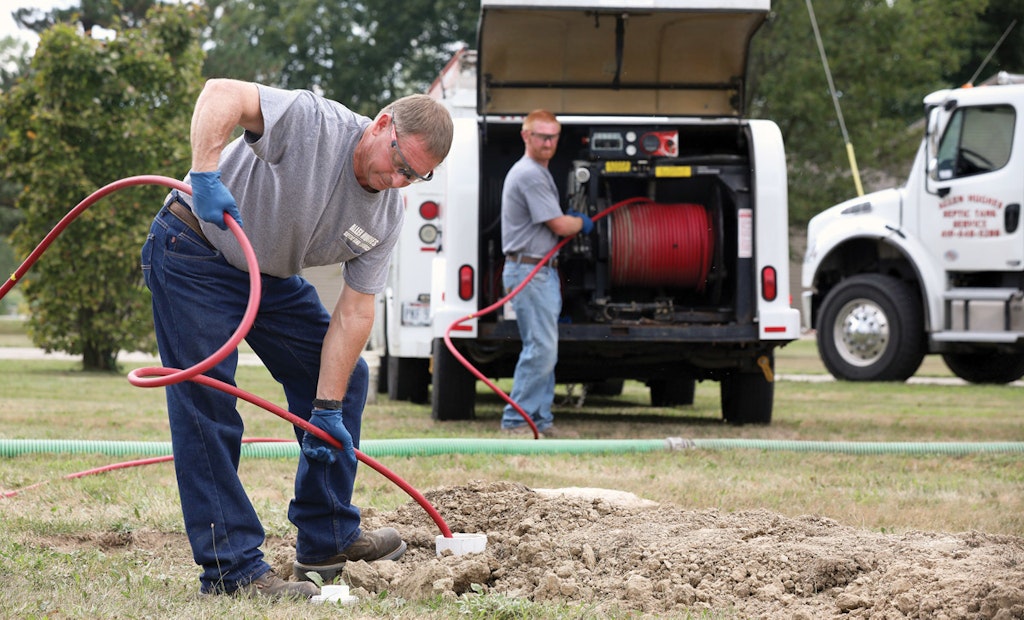
Owner Dale Wilson, with sons Tyler Wilson (left) and Travis Wilson, uses a 2017 Spartan Warrior jetter to clean a drainline running to a 1,500-gallon aeration system at a residence.
When Dale Wilson isn’t cleaning drains, he’s pumping. Or repairing. Or inspecting drain and sewer lines to see what needs cleaning or repairing. Septic and sewer systems in western Ohio are keeping his company busy and growing three and a half years after Wilson and his wife...
